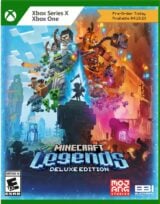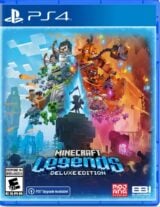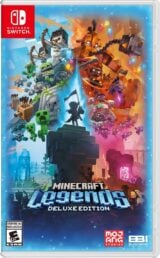Xbox’s Phil Spencer explains why he believes studio buyouts are good for gaming
Spencer also discusses where he’d like to grow Xbox’s first-party capabilities

Xbox head Phil Spencer has said he understands why some consumers are unsure if studio acquisitions are a good thing or a bad thing for gaming, but explained why he believes it is the former.
Over the past few years, Xbox has aggressively grown its portfolio of first-party studios. As well as setting up The Initiative (Perfect Dark) and a new Age of Empires studio, Xbox has acquired Ninja Theory (Hellblade), Playground Games (Forza Horizon), Obsidian (Fallout: New Vegas), InXile (Wasteland 3), Double Fine (Psychonauts) and most recently Bethesda in a $7.5 billion deal.
Speaking in a new video interview with IGN, Spencer said he understands why some people have reservations about studios being bought up but that he believes acquisitions are “a natural and healthy part” of the games business. Being acquired, if that is the avenue an independent studio chooses to go down, is a sign that the selling company has ‘made it’, he said.
“Sometimes I see dialogue out in the industry about, ‘well, are acquisitions a good thing or a bad thing?’ And I saw Sony just announced a couple of acquisitions —saying congrats to those teams on that— and I understand some of the sentiment from the community about whether these are a good thing or a bad thing when acquisitions happen,” Spencer said.

“But one thing I’ll put out there is, starting a new studio, starting any small business, frankly, is a very risky proposition, starting a video game studio is even more so. And if a team actually takes the risk of starting a new company, starting a studio, building that over years, building value in that, to say that they shouldn’t sell I think is just short-sighted.
“The whole thing that kind of causes this cycle of teams creating studios is that opportunity for those people taking an immense risk at starting new teams to realise the value in what they created, and M&A or acquisitions is absolutely part of it.
“It doesn’t mean every team has to end up selling their studio but I think it a natural and healthy part of our industry that certain teams will start a studio—many of them will fail, we know most small businesses fail, whether it’s video games or anything else—but those that make it through and at such a kind of risk-filled journey for them, to get to the point to create real value, I’m always going to congratulate when teams get to the point where they realise that value through acquisition or just massive independent success if that’s the path they also start to on,” Spencer continued.
“You know, many of those leaders will go off and start other things over time, it’s kind of the natural turnover that happens with entrepreneurs and start-up businesses, and for us we’re always out there looking at where could continue to build our first-part capability and looking at teams that we think would be good fits for us.”
Earlier this month, Xbox Game Studios boss Matt Booty said the platform holder is continuing to search for studios to purchase, as it targets releasing a first-party game “every quarter” going forwards.
During the IGN interview, Spencer identified a couple of gaps in Xbox’s first-party portfolio that he would like to fill.

“When I look at the portfolio, I still think there’s an opportunity for us with, I’d say more family friendly content,” he said. “When I think about the geographic diversity of our first-party studios, I think there’s still work for us to do there.
“And the number one thing that drives our platform is the strength of creators, whether it’s our first-party or third parties, and that’s just got to be a constant focus for us. And as everything is continuing to grow, as the business grows, as engagement grows, as subscribers grow, we’re going to continue to grow our first-party capability, its just kind of part of the mission that we’re on and I think you’ll continue to see that.”
Spencer also said last year that he’d like to see Xbox Game Studios develop more “casual content with a broad appeal”.
“E-rated content (to use an ESRB rating) is not a strength for us,” he told Gamereactor. “We obviously have Minecraft and we have some other franchises. But when I think about expanding the creative palette that our teams have, I think that is critically important.”
And on several previous occasions, Spencer has expressed a desire to acquire an Asian game developer, “in particular a Japanese studio”.














